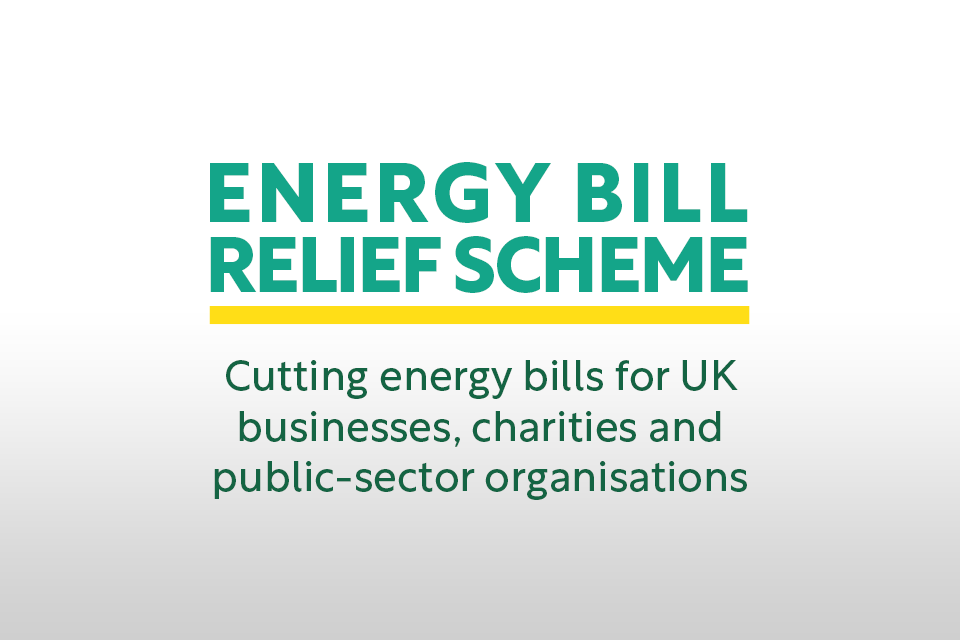The Department of Business, Energy and Industrial Strategy (BEIS) has released further information on the support that will be available to businesses this winter.
The Energy Bill Relief Scheme (EBRS) will provide energy relief for non-domestic customers (such as businesses, schools, charities and care homes etc.). Discounts will be applied to energy usage between 1st October 2022 and 31st March 2023. The EBRS will be available for those in Great Britain and a similar scheme with comparable support will be available in Northern Ireland.
The EBRS will be available to everyone on a non-domestic contract, such as businesses, schools, charities and care homes etc., who are:
- on existing fixed price contracts that were agreed on or after 1st April 2022
- signing new fixed price contracts
- on deemed/out of contract or variable tariffs
- on flexible purchase or similar contracts
Businesses that use gas or electricity for the purpose of generating power they are selling back into the grid will be excluded from the EBRS.
BEIS has announced the following caps:
- Electricity will be capped at £211 per megawatt hour (MWh)
- Gas prices will be capped at £75 per megawatt hour (MWh)
In real world terms this may look like, for example:
For a pub:
A pub uses 4 MWh of electricity and 16 MWh of gas a month. They signed a fixed contract in August 2022, giving them a current monthly energy bill of about £7,000. At the time they signed their contact, wholesale prices for the next 6 months were expected to be higher than the government supported price of £211/MWh for electricity, and £75/MWh for gas, meaning they can receive support under this scheme.
The difference between expected wholesale prices when they signed their contract and the government supported price is worth £380/MWh for electricity and £100/MWh for gas, meaning they receive a discount of £3,100 per month, reducing their bill by over 40%.
For a medium sized restaurant:
A medium sized restaurant uses around 3.5 MWh of electricity and 4 MWh of gas each month. They are on a variable contract, giving them a current monthly energy bill of around £3,900 per month. As they are on a variable contract, they can receive support up to the Maximum Discount (currently estimated to be £405/MWh for electricity and £115/MWh for gas). Applying the Maximum Discount rates means that their monthly energy bill reduces by around half.
Suppliers are to apply the reduction automatically to all eligible non-domestic customers, with the government compensating suppliers for the cost. The savings will apply to contracts signed since 1st April 2022.
The support will be automatically applied to all eligible bills. Businesses do not need to take any action or apply to the scheme directly. If a business signed a fixed term contract before 1st April 2022, they are ineligible for support under the scheme as they would not have been exposed to recent rises in wholesale prices.
Chancellor Kwarteng commented:
“We have stepped in to stop businesses collapsing, protect jobs, and limit inflation.
“And with our plans to boost home-grown energy supply, we will bring security to the sector, growth to the economy and secure a better deal for consumers.”
BEIS have also announced their intention to review the scheme in 3 months’ time in order to decide what, if any, future support will be given beyond March 2023; though it has clarified that any continuing support given to those deemed eligible would begin at the end of the initial 6-month support scheme, without a gap. The review will help to inform the government’s decision and to identify the most vulnerable non-domestic customers. It will consider:
- how effective the scheme has been in giving support to vulnerable non-domestic customers
- which groups of non-domestic customers (by sector, size or geography) remain particularly vulnerable to energy price rises, taking into account the latest price position and forward curves, alongside other cost pressures
- how to continue supporting these customers – either by extending the existing scheme for some users, or replacing with a different scheme
You can read the details of the EBRS in full here and stay up to date with other industry news, here.






 Featured Training
Featured Training
OUR MEMBERSHIP
We're here to help make your catering business a success. Whether that be starting up or getting on top of your compliance and marketing. We're here to help you succeed.
Want our latest content?
Subscribe to our mailing list and get weekly insights, resources and articles for free
Get the emails